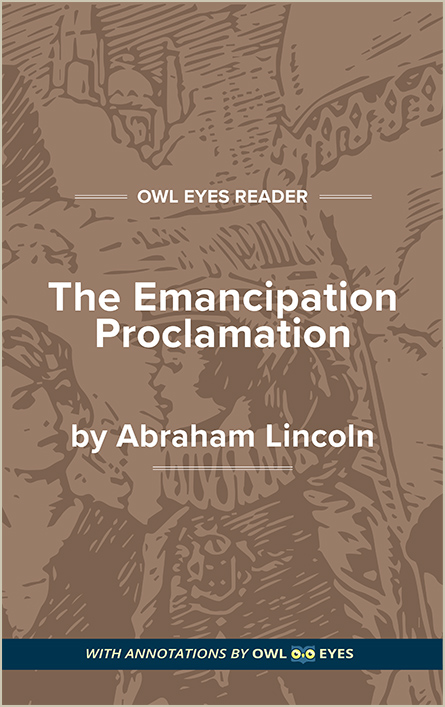Analysis Pages
Abraham Lincoln Biography
Abraham Lincoln has long been a fascinating subject for biographers and critics; in fact, the sixteenth president of the United States has probably inspired more published comment and analysis than any other American. Yet despite this close scrutiny, which has uncovered many details of his life and character, the investigation of Lincoln’s heritage and training fails to account for his facility in statesmanship or his eloquence as spokesman of a troubled time.
Lincoln was born in a log cabin in what is now Larue County, Kentucky. His pioneer parents were unlettered and undistinguished; it is ironic that their illiteracy should produce one of the most expressive voices of American history. Little is known of Nancy Hanks Lincoln, although a large measure of that mental and spiritual vigor discernible in her son is popularly supposed to have been derived from her. Thomas Lincoln, his father, was an unsuccessful carpenter and farmer with a reputation for instability and indecision.
In 1816 Lincoln’s family moved to Indiana, where life was even more sparse and uncomfortable than it had been in Kentucky. There, when Lincoln was nine years old, his mother died. A year later Thomas Lincoln wed Sarah Bush Johnston, a sensible, energetic widow who brought some order to the chaotic household and inspired in the young Lincoln a warm and lasting affection. During a brief, one-year brush with formal schooling, Lincoln gained an elementary knowledge of reading, writing, and ciphering. Yet this hard-working farm boy attained a deeper passion for knowledge and a definite interest in words and ideas.
Nor was this interest to prove a temporary one, despite the lack of intellectual stimuli in his youthful experience. During the years that followed—moving to Illinois, store-keeping, practicing law, marrying a Kentucky woman, becoming an indefatigable candidate for one political office or another—Lincoln was steadily blending that mixture of experience and reflection which would find its full flavor in the Gettysburg Address. His later accomplishments as a speaker and as a writer, overshadowed by the political and military crises that dominated his career, were never given their due by his contemporaries. Only later generations would recognize the unique eloquence of the speech at Gettysburg, the Second Inaugural Address, and the letter to Mrs. Bixby. Much of the fault lies in the nature of early American history itself. Few verbatim transcripts of Lincoln’s speeches were available to the public or to scholars; neither Lincoln nor his contemporaries saw fit to preserve them. Often, historians were forced to rely on newspaper transcripts, written from notes or secondhand accounts. As pointed out by Harold Holzer in The Lincoln-Douglas Debates, even the accepted version of Lincoln’s “House Divided” speech was based on an incorrect newspaper description. Lincoln did proofread the printed copy of his Cooper Union address, but this was by far the exception.
Understandably, it was difficult for the American public—Lincoln’s friends and enemies alike—to associate the rail splitter from Illinois with literary polish and excellence. They sneered at his lack of education and background, choosing to ignore the amazing zest for reading and study that filled great gaps in his formal training. A vast body of general information was at the command of the frontier lawyer who was to become president of his country, and his favorite authors covered a wide range from William Shakespeare to Artemus Ward. Lincoln lacked the mannered style of popular contemporary orators like Edward Everett. When speaking extemporaneously, Lincoln often rambled in his delivery. However, Lincoln’s presidential addresses and papers showed his ability to think and express himself clearly, to organize his material logically, and to adapt his style to widely varying types of audiences. This style had terseness, emotional appeal, and strength. Scorning conventional...
(The entire page is 1,400 words.)
Owl Eyes subscribers get unlimited access to our expert annotations, analyses, and study guides on your favorite texts. Master the classics for less than $5/month!

